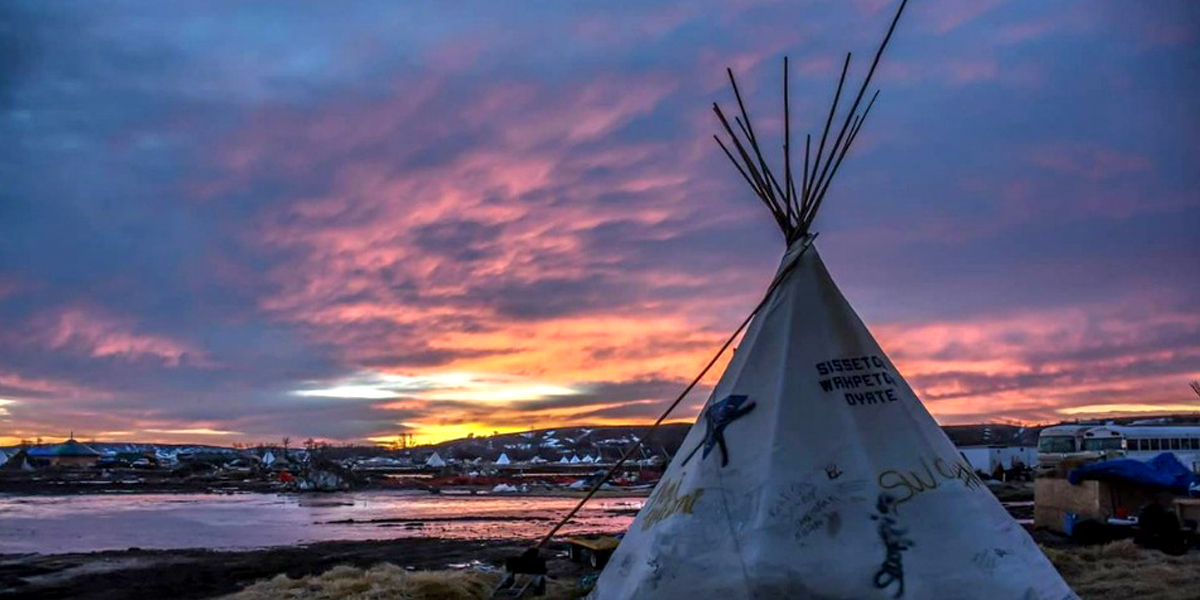
10 Arrested as Deadline to Evacuate Dakota Access Pipeline Protest Camp Passes

The deadline set by North Dakota Gov. Doug Burgum for evacuating the Cannon Ball Dakota Access Pipeline protest site passed Wednesday and most protesters peacefully vacated before the 2 p.m. cutoff time.
4 Pipeline Fights Intensify as Dakota Access Nears Completion https://t.co/NphteXzXtJ @IENearth @FrackAction @joshfoxfilm @MarkRuffalo @NRDC
— EcoWatch (@EcoWatch) February 19, 2017
Authorities arrested 10 remaining protesters refusing to leave the campground and an estimated few dozen people are still at the site. The Chicago Tribune reported this morning that the North Dakota’s governor said the remaining people “will have another chance to leave peacefully Thursday.”
New polling released from the Pew Research Center Wednesday shows nearly half of Americans oppose building the pipeline.
Despite continued public protest across the country—including divestment movements in several major cities—lawyers for the pipeline estimated in a court filing Wednesday that oil could be flowing as early as mid-March.
Yesterday, water protectors were evacuated from the main camp. This is not the end of a movement, it's a transition. We will persist #NoDAPL pic.twitter.com/0mFls9fxuy
— 350 dot org (@350) February 23, 2017
“These water protectors inspired people around the world by standing up for the right to clean water and a future free from fossil fuels,” Greenpeace USA Climate Campaigner Mary Sweeters said. “Allies around the world acting in solidarity with Standing Rock cannot stop now. We must expose every institution pushing the Dakota Access Pipeline project through and projects like it.”
For a deeper dive:
Campground evacuations: AP, ABC, CNN, Washington Post, WSJ, Time, The Guardian, LA Times, InsideClimate News
Divestment: CBS SF Bay, Los Angeles Magazine, FT, Law360, DCist
Polling: Greenwire Oil timing: Energywire Commentary: American Banker, John Heltman analysis
For more climate change and clean energy news, you can follow Climate Nexus on Twitter and Facebook, and sign up for daily Hot News.
[facebook https://www.facebook.com/EcoWatch/videos/1448710808475185/ expand=1]

 233k
233k  41k
41k  Subscribe
Subscribe 